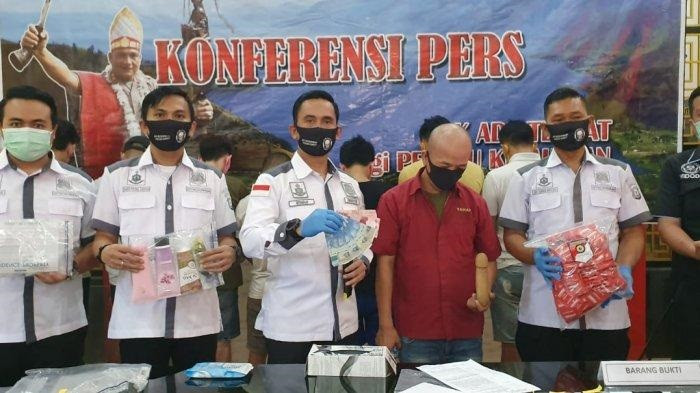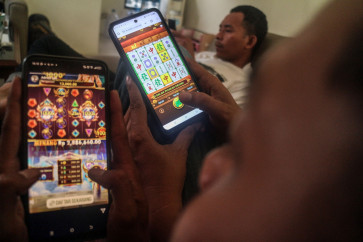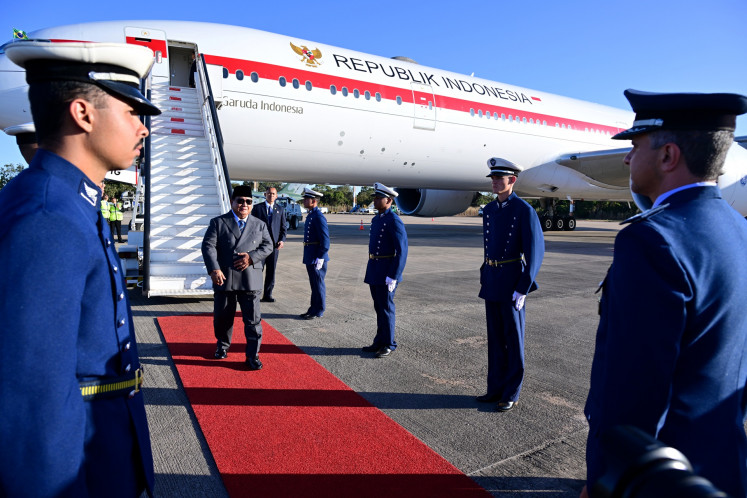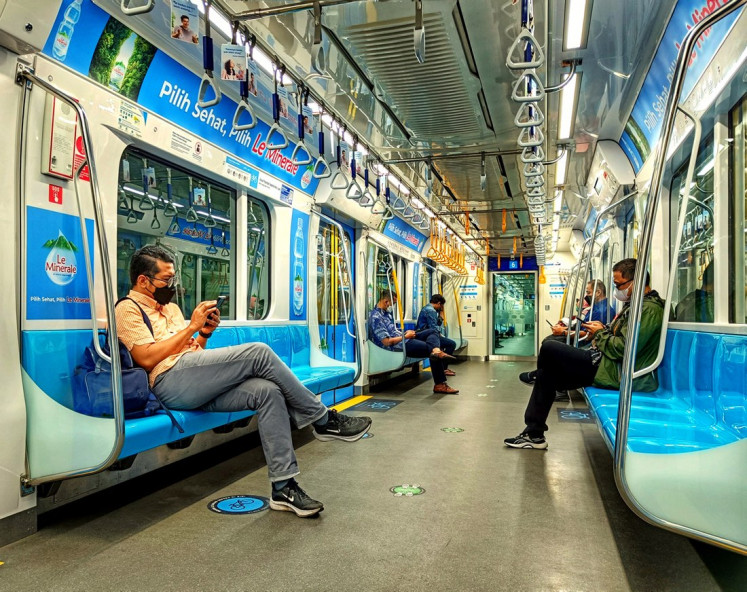Popular Reads
Top Results
Can't find what you're looking for?
View all search resultsPopular Reads
Top Results
Can't find what you're looking for?
View all search resultsIndonesia turns blind eye to same-sex exploitation
Gays and lesbians, in particular, are often viewed as lesser persons.
Change text size
Gift Premium Articles
to Anyone
S
ame-sex sexual exploitation and abuse is not an unusual discussion topic in Indonesia, with local media often becoming fired up about allegations of same-sex sexual exploitation and abuse involving celebrities.
In 2016, at least two male A-listers were reported to the police for sexual abuse in forcing their male employees to engage in same-sex sexual activities. According to the police report, the abuse involved not only coercion, but also power imbalance between the perpetrators and their victims. The celebrities allegedly coerced and lured their victims through job promises (or threats of dismissal) in return for sexual favors.
Years later in June 2020, the national media reported a trafficking case in Medan that involved 11 masseurs, whose employer allegedly forced them to provide same-sex sexual services to customers for more than two years. Unlike the discontinued A-lister cases of 2016, this case ended up in court, with the perpetrator convicted of human trafficking and sentenced to three years in prison and a Rp 120 million fine.
As one of the world’s pioneers in counter-trafficking, Indonesia should have seized the occasion of the 2020 Medan case to explore the layers of same-sex sex trafficking in the country. In 2007, Indonesia enacted the law on the elimination of human trafficking prior to ratifying the Palermo protocols two years later.
Since then, Indonesia has demonstrated its commitment to eradicating human trafficking through the Anti-Trafficking Task Force (ATTF). Unfortunately, in the realm of sex trafficking, the government often freezes when it comes to the issue of same-sex sexual exploitation.
Looking at the ATTF’s annual reports, the victims’ data are explicitly divided according to age, sex and the traffickers’ modus operandi. The report contains no data or other information on same-sex sexual exploitation or even same-sex prostitution.
This lack of information has raised concerns as to whether trafficking cases involving same-sex sexual exploitation have not been identified, or if these cases have always existed but remain unreported and unrecorded. The government should anticipate the second possibility.
It is foreseeable that same-sex exploitation would fall off the government’s radar. All topics related to accepting the diversity of sexual orientation have always been in the grey area and are often brushed aside in a discussion.
In a legal context, consensual same-sex relationships and sexual activities are not crimes. However, they are socially unacceptable. Heteronormativity in Indonesia has created a stigma against persons or groups based on their sexual orientation. Gays and lesbians, in particular, are often viewed as lesser persons.
This prevailing stigma may prevent victims of same-sex exploitation from seeking help and counseling. Consequently, same-sex sex trafficking is less likely to be reported. Looking at the Medan case, the fact that all 11 massage therapists had endured sexual exploitation for more than two years before their rescue indicates the internal struggles the victims also endured in whether to reach out and seek help.
Traffickers might also take advantage of the prevailing stigma to silence, manipulate and force victims to remain in their exploitative situation. In addition, this stigma might also cloud the judgment of relevant actors, including the victims’ friends and families, who sometimes persuade the victims to stay silent instead of encouraging them to report their case to the police and seek proper assistance.
The underreporting of same-sex sexual exploitation has limited the government's evidence-based efforts to combat human trafficking. On the prevention side, the government's lack of knowledge on cases of same-sex trafficking has resulted in the distribution of incomplete information in raising public awareness over the issue.
The possibility that a person could be sexually exploited by an individual of the same sex or gender is often ignored. Furthermore, public policies and victim services have always been built on the premise of heteronormativity. Therefore, victim assistance programs, such as rehabilitation and reintegration, are often generalized instead of individually tailored to incorporate the complexity of same-sex sexual exploitation.
Previous studies have found high rates of post-traumatic stress disorder (PTSD) among sexual minorities compared to heterosexuals. Social stigma, prejudice and discrimination can create a hostile and stressful environment that contributes to mental health problems. Social workers or psychologists might need to use a particular approach to help victims of same-sex human trafficking.
To effectively eradicate human trafficking, the government must acknowledge the existence of crosscutting complications such as heteronormativity, gender bias and discrimination against sexual minorities. Only by addressing these issues can the government eventually eliminate same-sex sexual exploitation in human trafficking.
Furthermore, the government and all relevant actors must raise awareness among all communities regarding the threat of same-sex sexual exploitation. In addition, they must enhance the capacities of all frontline workers and services in implementing the victim-centered approach.
Greater capacity and knowledge among all relevant actors could create a more encouraging environment for the victims of trafficking to report their cases, which could then lead to more resources for the government to fight same-sex human trafficking.
Heteronormativity and the complexity of gender and sexuality issues should not conceal same-sex sexual exploitation. Instead, the nation must be willing to switch its lens and adjust its perspectives so that no one is left unprotected.
***
The writer is founder of BRANI, an online platform for discussing sexuality and gender issues, and project assistant at an international organization.










